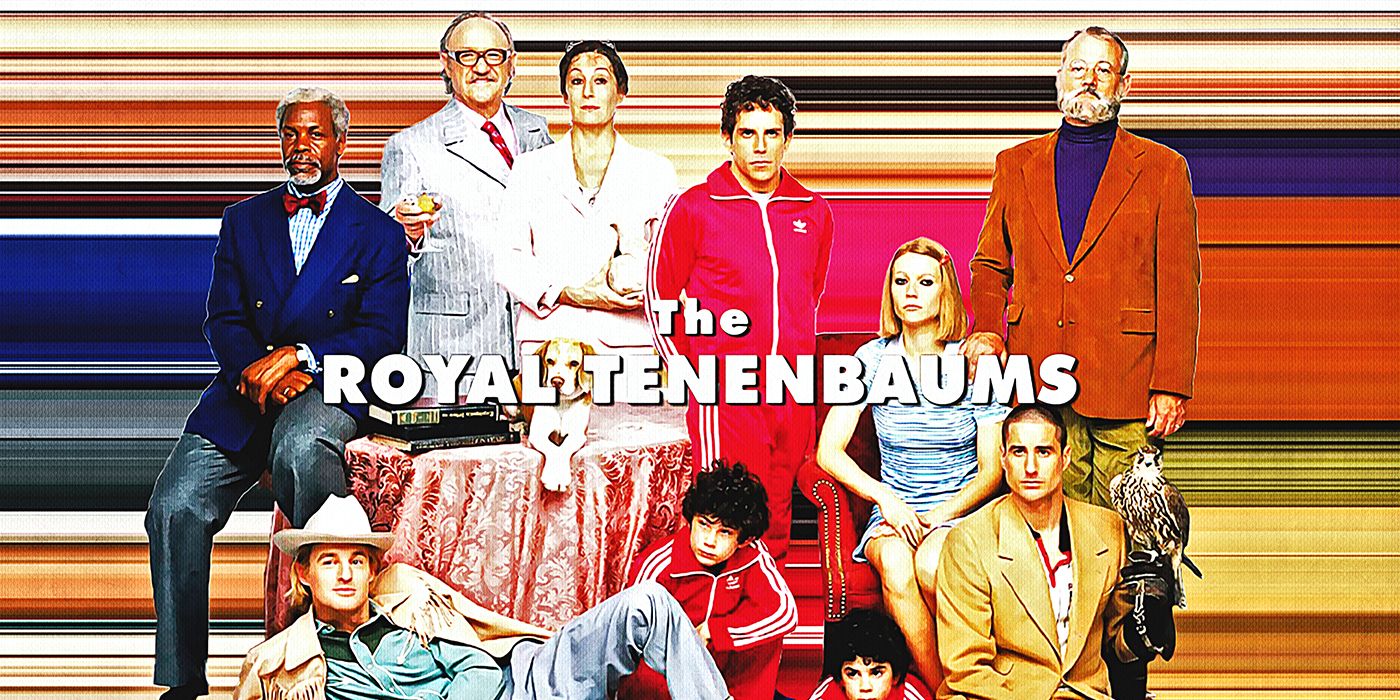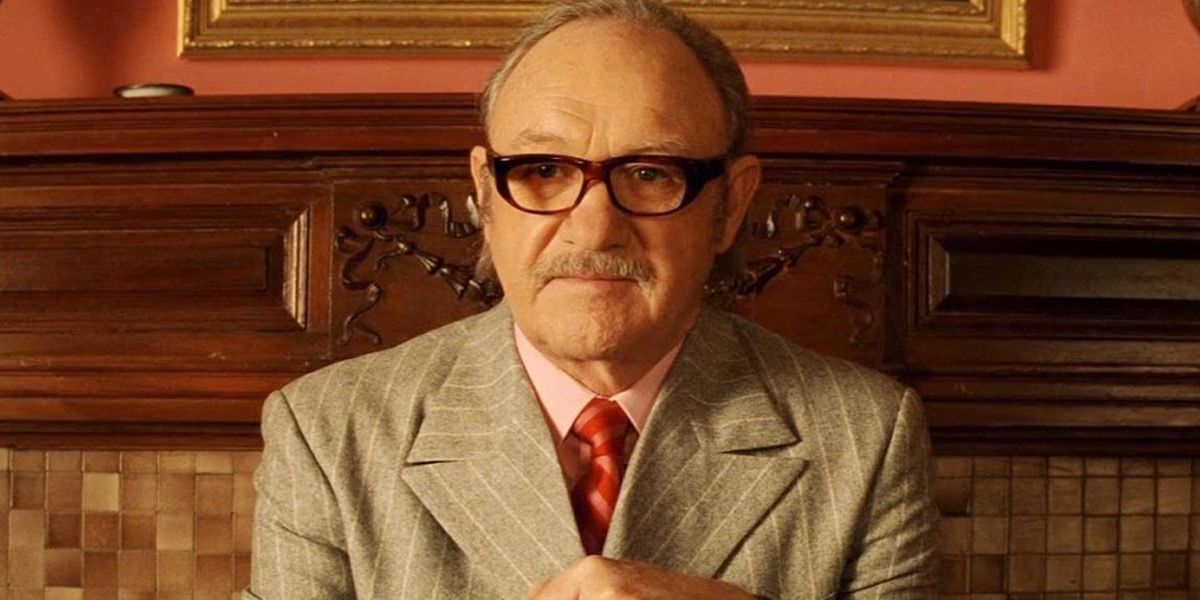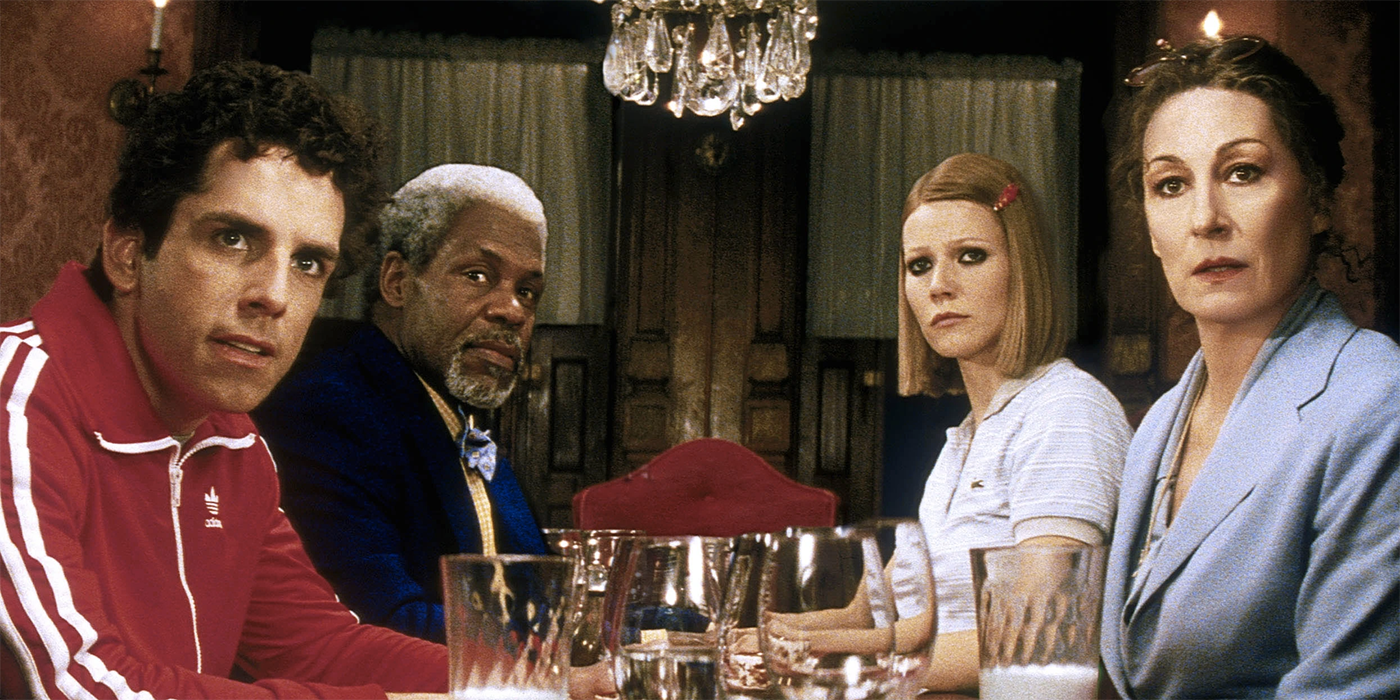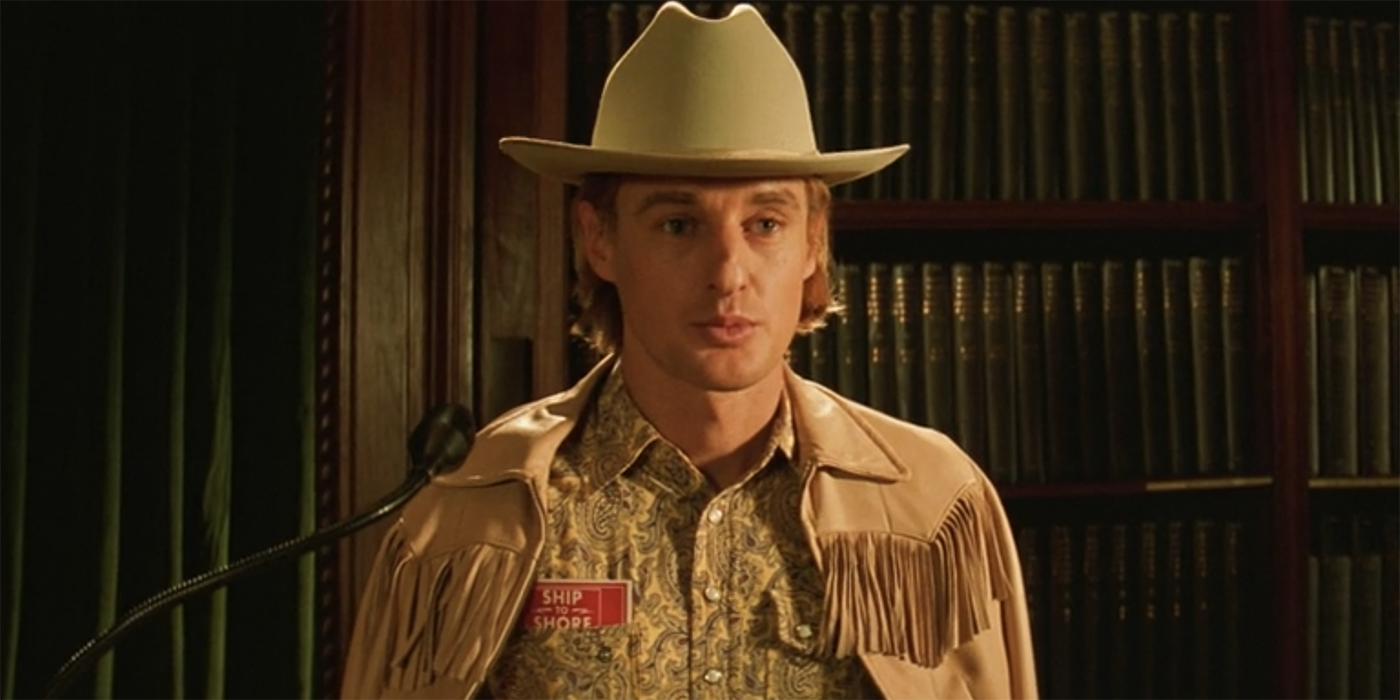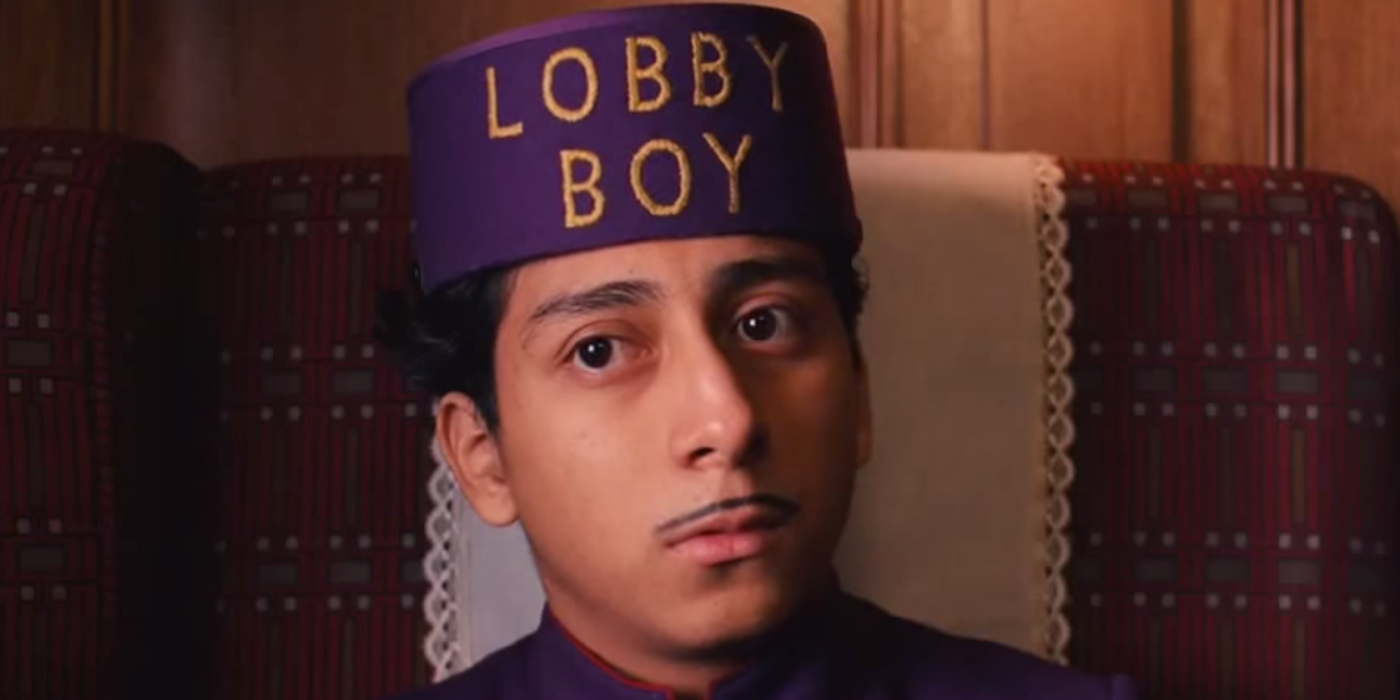The climactic sequence of Wes Anderson’s The Royal Tenenbaums is one of the most revealing scenes that the idiosyncratic Texas auteur has ever written. Royal Tenenbaum, the cantankerous con-man father of Archer Avenue’s once-illustrious Tenenbaum family, played to perfection by the great Gene Hackman, has just passed away from a heart attack. His family - wife Etheline (Anjelica Huston), grown children Chas (Ben Stiller), Margot (Gwyneth Paltrow), and Ritchie (Luke Wilson), surrogate child Eli Cash (co-screenwriter Owen Wilson), and co-conspirator Pagoda (Kumar Pallana, whom Anderson and Wilson befriended in their pre-Bottle Rocket days) - have gathered to pay their respects. Before the end credits roll over the bittersweet sounds of Van Morrison’s “Everyone,” Anderson and D.P. Robert Yeoman make sure we see Royal’s epitaph, which reads:
“Royal O’ Reilly Tenenbaum. 1932 - 2001. Died tragically rescuing his family from the wreckage of a destroyed sinking battleship."
We know this is not how Royal dies. The old man passes away quietly, in an ambulance, in the presence of his son, Chas, who has only just recently learned to accept his father for who he is. The epitaph is a lie, but it feels perversely appropriate in the final moments of this, Wes Anderson’s masterpiece. After all, Royal is a man for whom lying came as easily as breathing. Why wouldn’t he want to be remembered in this acclaimed, albeit fraudulent light? The epitaph is a tribute not to the person Royal was, but the ideal he represented, but how his family would prefer to remember him in spite of his abundant flaws.
On some fundamental level, every Wes Anderson film wrestles with the dangers of being stuck living in the past, and the courage required to face the uncertainties of the future. Royal may have been a bastard and a cheat, but in this tragic moment, his family is choosing to remember the things about him worth cherishing: his cocksure charisma, his way with a joke, and his brazen, misguided willingness to do whatever he needed to do to keep his family together, no matter how self-serving his efforts may have been in the end.
Nearly every Wes Anderson picture after Rushmore could be said to be about a family, whether it is a family of oceanographic documentarians in The Life Aquatic With Steve Zissou, a trio of siblings in The Darjeeling Limited, families of foxes and mangy “alpha-dogs” in Fantastic Mr. Fox and Isle Of Dogs, respectively, the employees of a luxurious European resort that acts as a makeshift family in The Grand Budapest Hotel, or a found family of expatriate journalists in last year’s The French Dispatch.
Due to the high level of artifice present in Anderson’s work, there is always a degree of removal in these quasi-familial dynamics, where the characters are often not related by blood. Tenenbaums cuts deeper because the characters are a literal biological clan: no matter how badly the Tenenbaums may want to escape one another, it simply will never be an option for any of them. You cannot outrun the forces that made you: as the film’s tagline goes, “Family isn’t a word - it’s a sentence.”
One of the motifs that Anderson has consistently returned to over the course of his career is a yearning for the past that acknowledges that nostalgia can be its own kind of trap. It’s why Bill Murray’s stoner Jacques Cousteau in The Life Aquatic won’t stop daydreaming about his golden years, or why the brothers of The Darjeeling Limited seem to belong to another time entirely while feeling slightly out-of-step in the reality that they occupy. What better way to avoid confronting the bitter truths of one’s present than by absconding into a vanished era?
The Royal Tenenbaums is the most cogent and emotionally piercing work that Anderson has ever drafted on this subject. Every member of the Tenenbaum family pines for an epoch that no longer exists. Royal misses the happy days of his marriage to Etheline (unsurprisingly, the headstrong Tenenbaum matriarch is capable of seeing things in a much clearer, less sentimental light). Meanwhile, Chas is mourning a wife, Ritchie is mourning a career, and Margot may be suffering from a total inability to feel pleasure after running away from home at a young age, only to be introduced to the world’s cruelty at the hands of opportunistic men.
Even Eli Cash, a Tenenbaum only in spirit, can’t face the fact that he’s a washed-up author of hack Westerns. His solution: drowning his sorrows in narcotics. It is worth mentioning that the only character to whom this maxim does not apply is Danny Glover’s good-hearted suitor Henry Sherman, who seems perfectly content with his station in life.
Generally speaking, Anderson’s supporters tend to fall into one of two camps. There are those who cherish the deeply personal nature of early tragicomedies like Bottle Rocket and Rushmore, and find that Anderson’s later work tends to get tripped up in the director’s love for elaborate, dollhouse-style storytelling machinations. Then, there are those who believe that Anderson’s cinematic mastery has only deepened with each new movie and that his later works (particularly Moonrise Kingdom and The Grand Budapest Hotel) rank among his best. While these films are worthy of all the praise they’ve been showered with, they can, at times, feel slightly less candid than Tenenbaums, which is raw enough to feel downright autobiographical. Like the Tenenbaums, Anderson is one of three siblings, and like Etheline Tenenbaum, his mother was an archeologist.
The scene that breaks many viewers’ hearts occurs late in the film after a mescaline-crazed Eli disrupts a family wedding. Anderson’s camera pans lovingly across the human panoply of the Tenenbaum family and their extended ilk, eventually landing on Chas, overcome with panic that his sons, Ari and Uzi, have been put in mortal danger. Royal, who has been nothing but cruel to Chas his entire life, then presents his son with a Dalmatian named Sparkplug. For the first time, we see Chas overcome with emotion he cannot contain. His reply (“I’ve had a rough year, dad”) says more than any long, overwritten speech ever could. At long last, the son embraces his errant father. It may not be a resolution, it may not bury the sins of the past, but it’s a start.
This is a note-perfect, purely cinematic moment that crystallizes and comes to represent another of Anderson’s beloved recurrent motifs, which is the distillation of immense, meaningful sentiments into tangible things. We see this in Rushmore, when Jason Schwartzman’s prep school student Max Fischer presents his romantic foe, the middle-aged depressive Herman Blume, with dueling decorative pins (one for punctuality, one for perfect attendance) as a means of putting their feud to an end. It’s also there in the heart-crushing final moments of The Grand Budapest Hotel, when F. Murray Abraham’s Zero Moustafa, owner of the titular hotel, dines on a Mendl’s pastry that reminds him of his departed true love, Agatha.
The style-over-substance criticism that frequently gets leveled at Anderson’s movies seems to miss a crucial point of context, which is that the director possesses an enviable and uncommon talent for refining complex emotional undercurrents and delivering them to his audience not via throat-clearing dialogue dumps, but through the minimal, tasteful presentation of rarefied objects. There are countless examples of this across the course of Anderson’s filmography. Yet, these occurrences in Tenenbaums come packaged with a grave kind of heaviness: an emotional weight that carries more hurt than some of the lighter movies that were to come later in Anderson’s career.
Of course, Anderson has created his own movie family of sorts in the years since Tenenbaums: actors like Bill Murray, Owen Wilson, and Jason Schwartzman show up for project after project (who are also slated to appear in Anderson’s upcoming Asteroid City), and this isn’t even mentioning newer members like Jeff Goldblum, Tilda Swinton, Bob Balaban, Frances McDormand, Adrien Brody, Tony Revelori, and many others. Like Max Fischer, he has established a merry little troop of his own, and their collective mission seems to involve re-imagining our comparatively humdrum world to be a little more beautiful, a little more melancholic, a little more quintessentially Wes.
Anderson understands that families, while imperfect, are fragmented, beautiful, inescapable, and all other manners of contradictory things. The Royal Tenenbaums is his ultimate ode to family and the masterpiece that he may spend the rest of his career trying to top.

